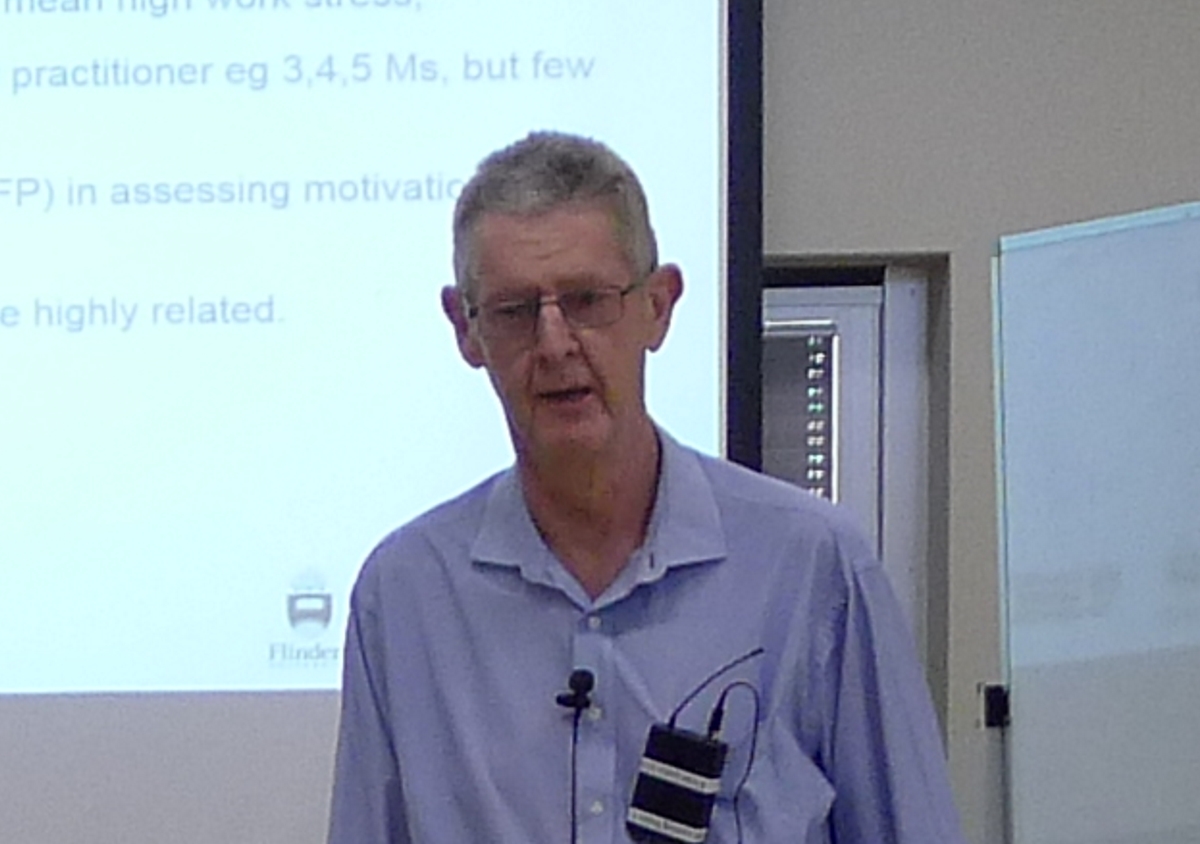
I was fortunate to have known, worked and conversed with Mike Tyrrell over the last three decades. Many of us working in Flinders NT were grateful recipients of his unstinting generosity, applied wisdom and wicked sense of humour.
Mike’s early years were ones of privilege in leafy Yarralumla. His father, Sir Murray Louis Tyrrell, was assistant secretary or personal secretary to a succession of Ministers including the iconic Labor PM Ben Chifley, and went on to serve for a record 26 years as Official Secretary to a succession of Governors-General.
Mike studied at ANU and then took off overland through Asia to Europe – his ‘Odyssey’, or, in retrospect, the first youthful leg of a longer journey until he found his ‘village’. He subsequently worked in Scotland; in Canberra – as the inaugural psychologist in the psychiatric unit at Canberra Hospital; in Rabaul in New Guinea, where he completed his Master of Psychology and where the first two of four children were born; and then to Tamworth to head up mental health services in the New England region, to tend to his acreage and raise his beloved sheep.
Mike arrived in Alice Springs to take up the role of regional director of the health department in 1986. He was my first boss and mentor in NT. He introduced me to the management realpolitik of a complex organisation, and provided a role model; this included modelling how to manage with equanimity, fairness and humour. He had a strong Labor pedigree, and maintained a strong belief in equity – a more just, fairer society. However, his Labor connections didn’t go down too well with the conservative ‘powers that were’ in the NT in the early 90s. His position was abolished following an external review and with his partner Barb, he set up a private psychology and counselling clinic – Alice People Services. He had found his village.
He was a practical and skilled clinician. Many Centralians benefited from his psychological acumen. Nettie worked with Mike in the late 90s, when he provided services to children and their families who were clients of FACS. She remembers his easy grace putting anxious or angry people at ease; his determined efforts to understand his clients (and his colleagues), so that whilst some behaviours were not acceptable, his clients always were; and his willingness to accept a critique of his perspective and be open to the views of others.
He was also passionate and persistent. For the last decade or so he had intermittently discussed with me his ideas about how to better address the long-standing problem of health staff recruitment and retention in remote areas. This had troubled him since his time in Rabaul. Was the accepted wisdom that remote areas attracted the 3Ms – mercenaries, misfits and missionaries – valid? This long gestation resulted in a challenging research project to develop a survey instrument that would elucidate the sort of motivations predictive of longevity in the very remote workplace and then test it. He doggedly sought out specialist statistical and survey development support and training, accepted the review and critique of his chapters with grace and humility, and we argued at great length about the correct placement of apostrophes.
During his time as a PhD scholar at the Centre for Remote Health (CRH), Mike generously and naturally provided CRH staff and others the benefits of a highly experienced and calm elder, dispensing advice as required and good humour as a matter of course.
Mike finally completed his PhD in the lengthening shadow of a most horrible disease. No, the 3Ms was a myth. There was no evidence that money, being on the run or religious motivations were significant motivators. Health professionals with strong intercultural interests, who are clinically autonomous and less interested in maintaining work/lifestyle balance tended to stay working in very remote communities.
Mike made the diagnosis of Motor Neurone Disease himself, to be confirmed later in 2017.
Unable to attend the ceremony in Adelaide, he then provided his family, Nettie and me with the privilege of attending a PhD conferral ceremony in his Raggatt St lounge room. It was the most moving graduation I have ever attended. With his MND worsening, he further achieved publication of his important research results in the prestigious Australian Journal of Psychology. This was a testament to his curiosity and grit.
In his final months, he taught us all how to behave in the face of adversity. His response to a terrible disease was courageous, thoughtful of others (as ever) and entirely free of self-pity. Mike was, in a simultaneously old-fashioned but entirely contemporary way, a gentleman, and indeed a certified scholar. It was clear at his crowded funeral and wake that he had been an important presence in many lives for a long time – as a father, grandfather, husband, boss, mentor, colleague, counsellor, teacher, student and friend.
We are very sad he is no longer with us. We are very lucky to have known him. And we continue to benefit from all we have learnt from him.
Author: Professor John Wakerman, Associate Dean, Flinders NT

